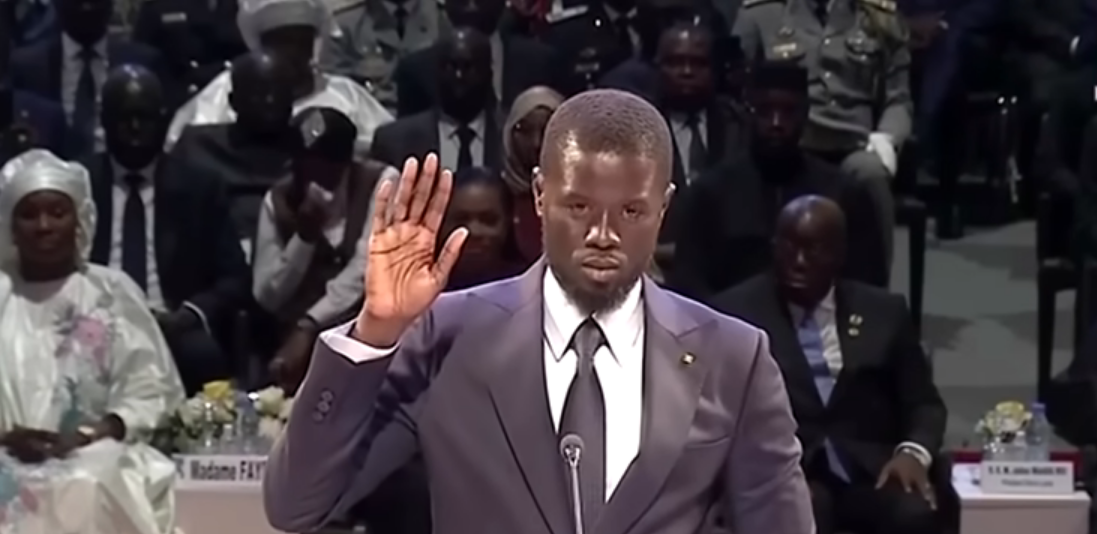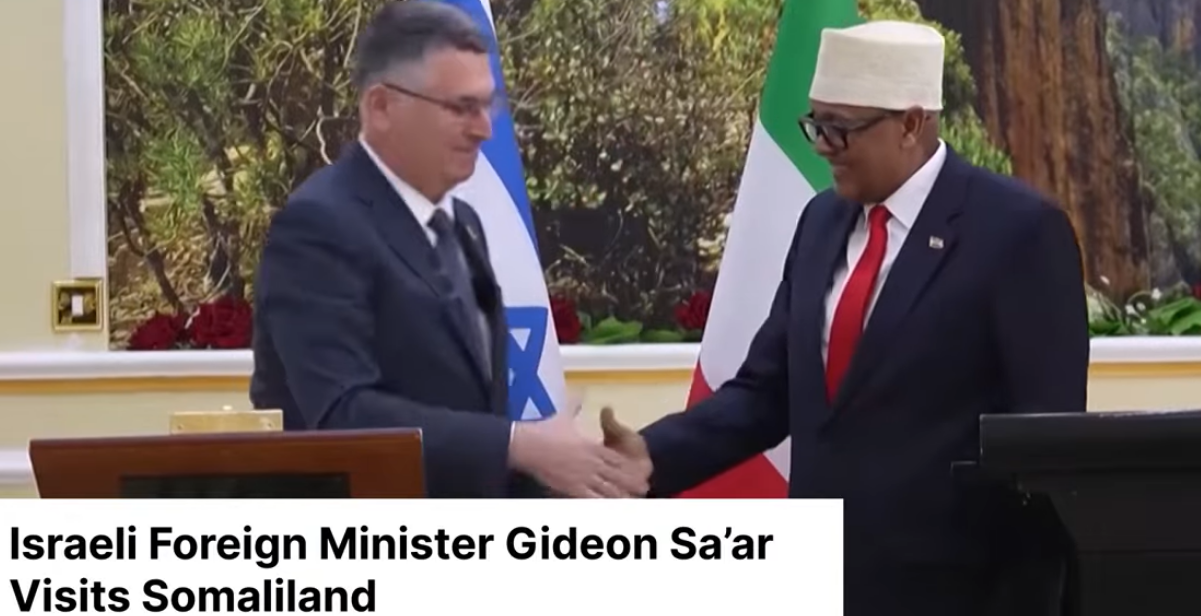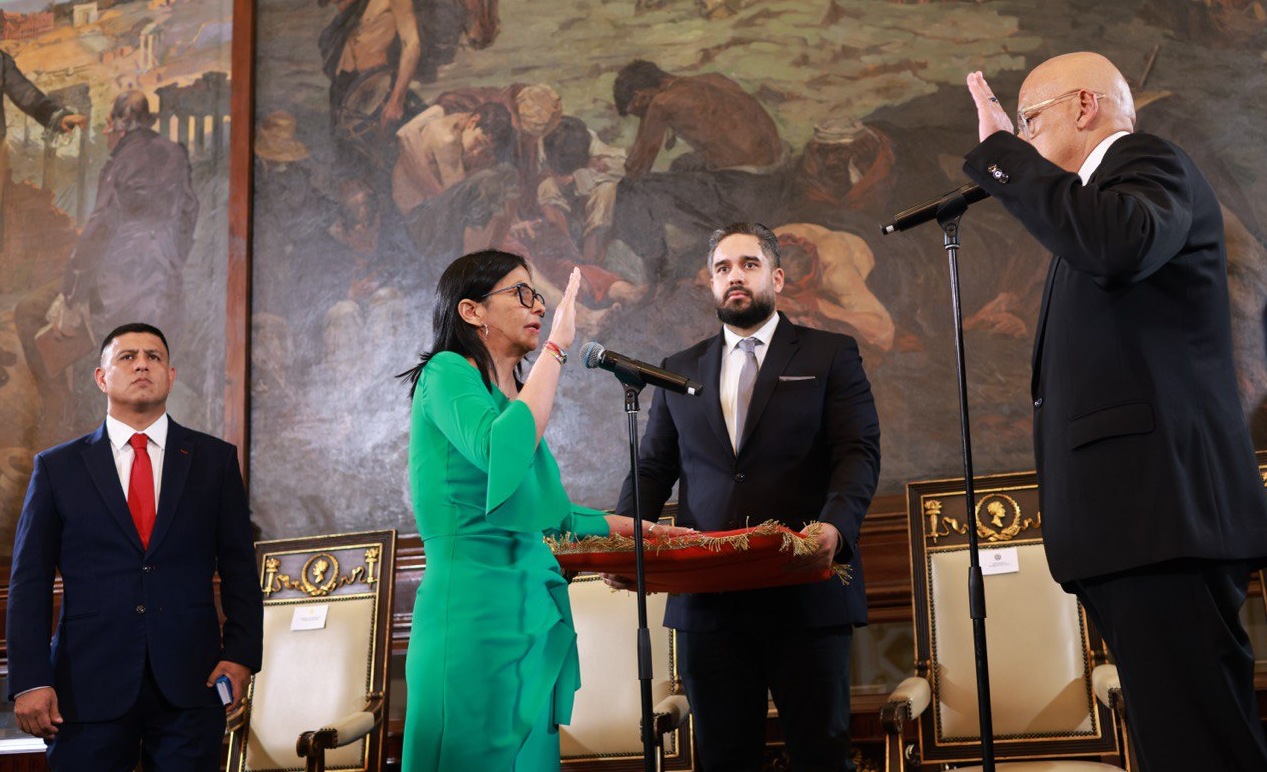By Martins Agbonlahor
Photos: Facebook\Wikimedia Commons\YouTube Screenshots
The build up to the Senegalese presidential election of March 24 and its monumental outcome can aptly be comparable to a scene taken straight from a fictional novel, as it was manifestly beyond the ordinary.
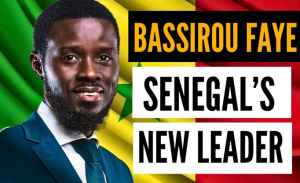
Bassirou Faye, the opposition candidate and eventual winner of that election, had been released from prison only a few weeks before. But in one unique somersault, he organized, strategized, and polled far ahead of other candidates, defeating them decisively in the tightly-contested election, adjudged free and fair by regional and international observers.
What a feat indeed!
The elected president was one who didn’t give a damn about being railroaded to prison, knowing such sacrifice would embolden his innate ideals. In fact, his metamorphosis from prisoner-to-president reminds me of the travails of the late Cuban leader, Fidel Castro Ruz, who himself, was incarcerated after his guerilla attack on Moncada barracks in 1953 only to eventually overthrow the country’s die-hard dictator a few years later, and cleanse the Augean stable, instituting a socialist rule. The bearded revolutionary had actually said in his widely publicized trial available in the public domain, that “Prison is an honorable place when one’s motive is lofty and great.”
Yes, Senegal is a unique country, and holds the badge of honor as the only West African country where spineless and adventurist military officers have not bared their bloody fangs. Put succinctly, she is one of the very few African States that has never experienced a coup d’état or exceptionally harsh authoritarianism.
Ironically, this same country was almost on the brink of anarchy only a few months ago, when ex-president Macky Sall’s political orchestration to postpone the general elections resulted in mass protests and civil disobedience, leading to the maiming and deaths of innocent demonstrators. Lovers of democracy the world over, were on tenterhooks, waiting with bated breath, as our hearts pounded furiously against our ribcages, not knowing if Mother Senegal was to fall irretrievably into the abyss of political quagmire or on the verge of being utterly devoured by her own offspring in a twisted ritual of political matriphagy.
I had advised in an earlier essay submitted to the Black Star News that the huge discontentment in the country was like a boil in the scrotum that needed to be handled carefully, and that demonstrators must protest peacefully and not engage in wanton vandalism that will give a plausible excuse for the military to step in.

And two months after, a new dawn has emerged.
The now-talked-about novus homo, who took Senegalese politics by storm, is only 44: the youngest elected leader in Africa. And I know he will swagger at such a feat. Why won’t he? Though an older man, I, myself, would have also walked with my chest thrown out, were I to preside over my country’s affairs, had Nigeria not been an utterly failed state.
Having said this, I must now get down to brass tacks and urge that the drums, congas, vuvuzelas, and other percussion instruments, be put aside, as there’s a gargantuan task confronting the newly-elected president, who must rise to the occasion and deliver for the poor masses who voted him in.
He has started well by declaring his assets, which in itself, is an act of transparency. However, we will reexamine and analyze this again when he’s far into his electoral term to gauge if his conscience has been stained by the spoils of politics, and if his declared assets have quadrupled magically, as is the wont of most elected African rulers.
President Faye has also promised to deal “decisively” with corruption, which happens to be the bane of African nation-states. I urge him to be objective, in that those alleged to be “corrupt officials” are deemed innocent until proven otherwise by the law courts. In this vein, the Senegalese judiciary should be given free rein to prosecute or set free without unnecessary interference or having the organ enmeshed in pernicious bureaucratic bungling.
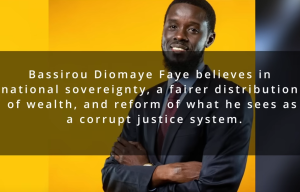
In the economic front, the new president and his team should set up programs for job creation to nip youth joblessness, which, in reality, is the elephant in the room. With unemployment currently standing at 4.15%, Senegalese youths, many of them, living in squalor, filth, and degeneracy, have become unfortunate victims of human trafficking and some of them, constantly swallowed up by the cruel Mediterranean Sea in their bid for a better life overseas.
On April 25, this year, fifty Senegalese youths drowned when their boat which had set off from one of the country’s coasts, caught fire and capsized in the Canary island of El Hierro. They were heading to Spain.
I call on the new government to set up NGOs to assess why the youths are fleeing in droves to other countries (the pull factors), and the reasons they are constrained to leave by whatever means (the push factors), with a view to resolving this problem.
Also, the recent discovery of new oil and gas fields in the country should aid in job creation and elevate the country stratospherically, in so far as Senegalese politicians do not resort to lootocracy and become like Nigeria, which currently has the curse of oil hanging on its head like the Sword of Damocles, so much so that innovation is strangled in the country, and all aspects of development, stunted.
All I have adumbrated here may seem a tall order. But I sincerely believe they are feasible, if President Faye can put his rich array of intelligent policy makers to work. Those tried-and-tested technocrats I know too well can put Senegal on the path to glory if and only if they are ready to do their assigned jobs selflessly, including the current Prime Minister, Ousmane Sonko, a former mayor and a juridical scientist of no mean ability.
On a milder note, we are told that President Faye’s middle-name of “Diomaye,” is translated to mean “the honorable one” in the Serer tribe to which he belongs. While names have spiritual and esoteric significance in Africa, it is hoped he leaves up to his middle-name, and with his team of technocrats, steer Senegal in the right direction.

Martins Agbonlahor is a trained lawyer, journalist and author. He resides in Greater Manchester, The United Kingdom.
